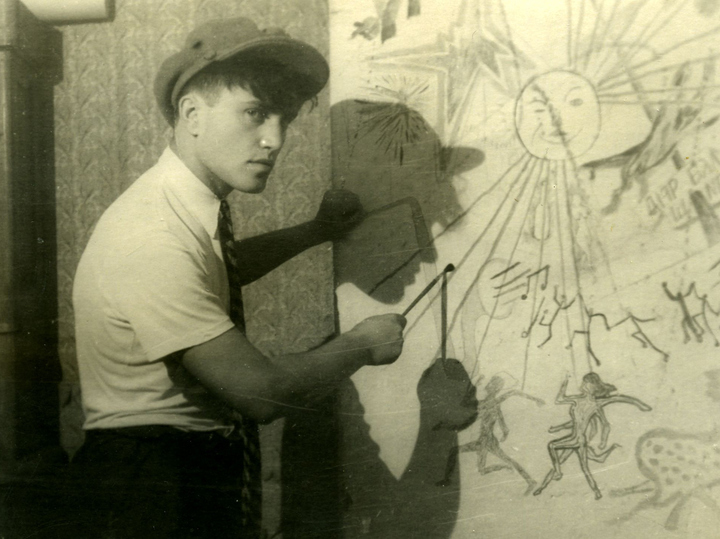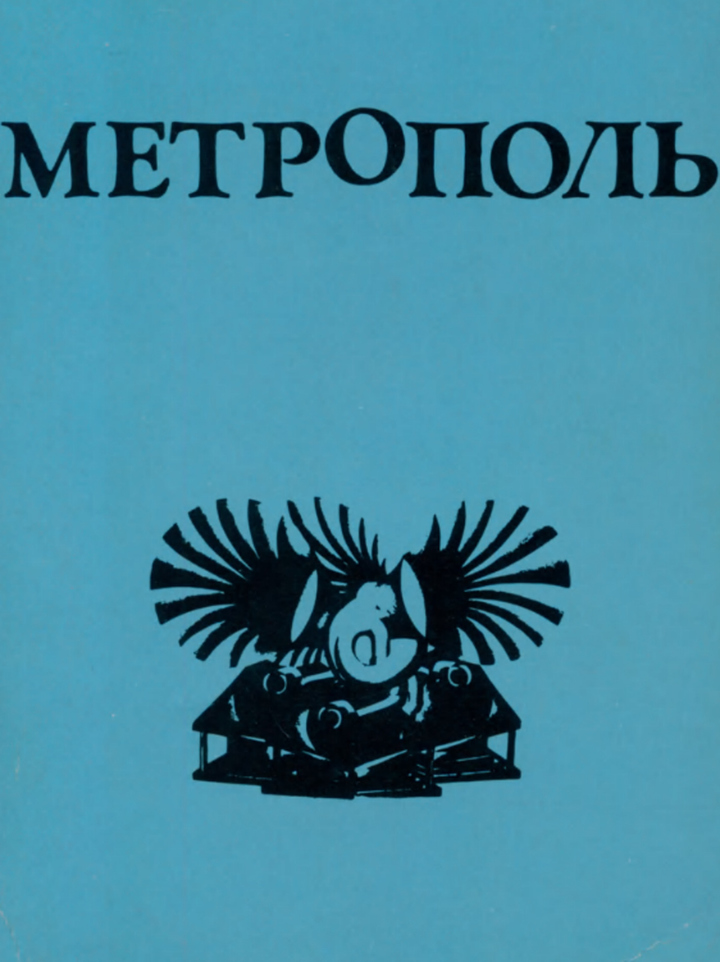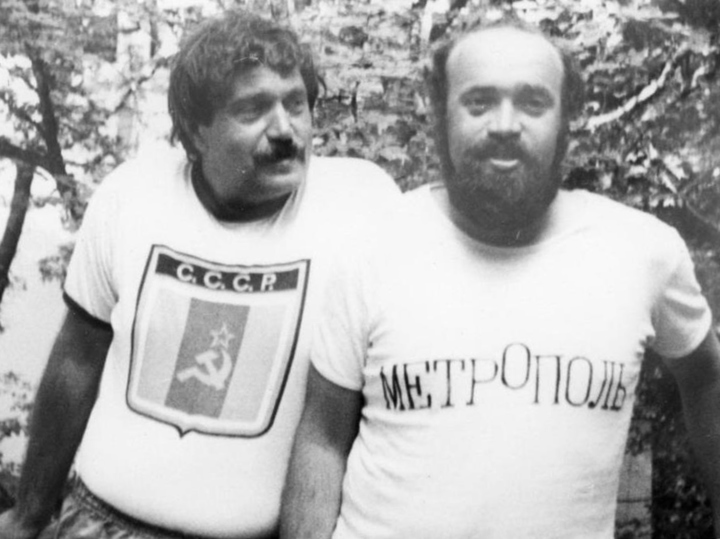Vasily Aksenov in the novel “Crimea Island” created the image of an ideal Russia
[ad_1]
— Dmitry Pavlovich, Vasily Aksyonov spent a significant part of his life in exile, and it was abroad that he created many great works. Was his break with the USSR dictated and predetermined by Stalin’s repressions against his mother and father? Why, in principle, did writers become anti-Soviet?
– Let’s start with the fact that Aksyonov did not leave of his own free will – he was squeezed out of the country. Like almost any member of the sixties, he took into account this possibility, but did not seek to leave, but saw his task in changing the atmosphere in the USSR. Answering your question, let me remind you who they are – the parents of Vasily Pavlovich. His family is absolutely Soviet and nomenklatura. In the truest sense of the word. Father – Pavel Aksenov – a veteran of the Civil War, a Bolshevik, head of the city executive committee of Kazan. Mother – Evgenia Ginzburg – teacher and journalist of the party press. Like many representatives of this “new class”, as Milovan Djilas called the nomenclature, they fell into the heat of the party struggle in the CPSU (b) and under the rink of repression.
Aksenov was then five years old. He didn’t quite understand what had actually happened. But I saw – life has become different, mom and dad are not around. There is no cozy apartment. There is no car. He began to associate his and his family’s troubles with the Soviet authorities later – when he went to Magadan to his mother, who had been released from the camp for a settlement. And survived her second arrest.
Even more clearly, he felt his, so to speak, incomplete Sovietness, when, due to the imprisonment of his parents, he had problems at the university. At the same time, as he said, from the age of fourteen he no longer felt like a Soviet.
But I do not see a direct connection between this feeling and his emigration. Yes, he was a non-Soviet person and a non-Soviet writer. But that was not the reason for his departure.
– Many of the sixties harbored the illusion that the “thaw” is forever. A striking example is a quote from Yevtushenko’s poetry about a time when the camps were empty and the halls where people listened to poetry were overflowing. Did Aksenov perceive that era with optimism? Did romantic dreams about the communist future of mankind capture him at least briefly?
– In society and the literary environment of the “thaw” there was a severe struggle. Between those who loved the Stalinist past, who were fiercely afraid of any changes, and those who wanted a different fate for the country and its peoples. Judging by Aksenov’s texts, he, like his close friend Anatoly Gladilin, like Andrei Voznesensky, Bella Akhmadulina, Bulat Okudzhava and many of their colleagues and comrades, hoped that liberalization would win and the USSR would become a freer and more democratic country. That will abolish ideological censorship. They imagined the future rather vaguely and differently. For example, Gladilin at one time saw the “thaw” as a kind of communist anti-bureaucratic revolution leading to freedom. Aksyonov was much more moderate in his dreams. But they were.

Party membership and other inventions of party members
– Another famous emigrant – Anatoly Kuznetsov – was first published in Soviet magazines, but then he ceased to fit into the official format and resorted to the mechanisms of “tamizdat”. Is Vasily Aksyonov possible as part of an exclusively official literary process? He could continue to publish in Youth and get along with the Soviet ideology. Or was a collision inevitable?
– Anatoly Kuznetsov, his non-return is a different topic. Aksyonov, on the other hand, acted in the most official literary process for quite a long time. He, like Viktor Nekrasov, the author of In the Trenches of Stalingrad, Vladimir Maksimov, the author of the novel We Settle in the Earth, Georgy Vladimov, who wrote Big Ore, and many other future emigrants, were published in magazines and published in Soviet Writer. But all their texts were edited, and then they went to censorship. It was an integral part of the “official literary process”. And Aksyonov would prefer that it did not exist at all. For literature to be free from ideological and political blinders and norms.
He believed that a literary text, by definition, cannot be Soviet or anti-Soviet, that literature lives according to other laws. And her so-called partisanship is an invention of the party members. By the way, he also chose the path of “tamizdat” – he gave the novel “The Burn” to the West.
– Is the meeting where Khrushchev smashed writers (including Aksenov and Voznesensky) not a myth? To what extent are these events documented?
— The meeting on March 7-8, 1963 is not a myth. But Khrushchev did not smash everyone, but specifically Voznesensky. He shook his fist. He shouted loudly. Driven out of the country. But then he lowered his ardor and – to the great disappointment of the conservatives – said: “work.”
When Voznesensky, shocked by the rudeness of the leader, returned to the hall, Nikita Sergeevich called Aksenov to the podium. He asked: “Are you taking revenge on us for your father?” (He thought Pavel Vasilievich died, but he survived after serving ten years). Aksyonov replied: “My father is alive …” There was confusion, and a break was announced.
All this is recorded, reflected in the video and photo. But the cause of Khrushchev’s rampage was not their works. He was told that Voznesensky and Aksyonov, in an interview with a Polish magazine, did not deny the possibility of a multi-party system in the USSR. And in general – a lot of things said. Yevgeny Yevtushenko later got the same for the same, although there were few authors in the country more flexible than he.
In that March, screenwriter Gennady Shpalikov and director Marlen Khutsiev, the creators of the film Ilyich’s Outpost, got it. All in all, it was tough. Criticized authors were worked through for a long time at literary plenums and meetings – they were forced to repent. And Aksenov, meanwhile, showed off in Argentina – he presented at the film festival a tape shot based on his book Colleagues.
Surprisingly, the literary authorities somehow missed this. And when they called to invite them to a scolding, and found out about the trip, they roared into the phone: “Who let you in?” Then he wrote a wonderful story about this, “Under the sky of sultry Argentina.”
– Studying the life and work of Aksenov, what discoveries did you come across? Is it possible to say that the volume in the Life of Remarkable People series that came out from under your pen became a turning point? In general, to what extent Aksenov is not studied and understood today?
– Aksenov’s books turned my idea of literature upside down. Though not completely, but still. When I read them at school – “Round the clock non-stop” and “It is a pity that you were not with us.” Before that, I didn’t even know that it was possible to compose so easily and freely, as if there were no USSR around.
Before writing both of my books about Vasily Pavlovich (the second, completely different from the ZhZL – “Vasily Aksenov. A Sentimental Journey” – was published in the same 2012), I read all of his texts that were available then. And I realized that in his work, the stylistic dissimilarity of Aksenov, who worked in the Union, Aksenov, an emigrant, and Aksenov, writing in post-Soviet Russia, is clearly visible.
What did I discover? That a gifted and thirsting for freedom person born and living in a totalitarian system can sometimes endure this system for a very, very long time. Grit your teeth. But – be patient.
As for Aksenov’s heritage, it has been studied in depth. But I think there are always topics that are worth discussing in more detail. For example, the role and place of food in his writings. And this is only partly a joke. Reread his texts, and you will see: this role is indeed great.
– Let’s remember the famous almanac “Metropol”. What works did Aksenov publish there, what was his role in the creation of this uncensored publication and in general in the literary underground?
– “Metropol” was started by prose writers Yevgeny Popov and Viktor Erofeev. And Aksyonov became a kind of master of this project. He always dreamed of obsceneness. And now the opportunity arose to try to put it into practice. By the way, the creators and authors of the almanac hoped to release it officially. The main criterion for selecting texts was their quality – the talent of the authors. (By the way, Vladimir Vysotsky was published in the Metropol for the first time.) None of the metropolitans saw anything dangerous for the authorities in their undertaking, their brainchild. The authorities themselves saw the danger.

– And after that, Aksenov’s departure became inevitable?
– Yes, from this moment, and not from the beginning of work on the almanac, the possibility of departure arises. The leadership and the KGB were outraged by the attempt to publish a collection of texts, carried out in addition to official channels. Hence the “Metropol case” – studies, threats, pogrom articles, expulsions from the Writers’ Union, Aksenov’s return of his membership card and, finally, his departure.
Soviet bookcrossing
– What followed the emigration? What steps were taken at home to erase the name of another “fugitive” from modern history?
– The books of all émigré writers labeled as “slanderers” and “enemies” were removed from sale and open library collections. Sometimes destroyed. They were not mentioned in the press, and if they were, then as “slanderers” and “enemies”.
But, firstly, a lot of books and journal publications were already in the hands of readers, and they shared them with each other. (There was such a formula – to give a book for the night.) And secondly, there was a Western radio, where they read their texts, as well as “tamizdat” penetrating through the iron curtain.
In exile, Aksenov was quite comfortable: he lived in different cities of the United States, worked at universities. Received the high title of full professor. He wrote a lot. It was published by major publishing houses: in Russian – Ardis, in English – Random House.
– Which segment of Aksenov’s biography is the most productive and vivid?
– Since the publication of his first stories in Yunost, all periods of Aksenov’s life have been productive. Except, perhaps, at the very end of the 1960s, when he was overwhelmed and crushed by the entry of Soviet troops into Czechoslovakia, which he perceived as the collapse of his hopes for democracy.
In the USSR, from 1958 to 1980, he published dozens of works. It was published in Eastern Europe. Then “Burn”, “In Search of a Sad Baby”, “Say Raisins”, “Crimea Island”, essays, essays and interviews were published in the States. During his life in two houses – between Russia and France – a five-volume book and “American” books were published: the novels “The Yolk of an Egg” (written in the States), “A New Sweet Style”, “Rare Earths”, “Caesarean Glow”, “Voltaireans and Voltairian”, “Moscow Saga”. She was screened. In some places it’s good.
After the departure of Vasily Pavlovich, the books “Mysterious Passion” and “Lendlizovsky” were published, as well as a number of collections.

Homecoming
— Like Alexander Solzhenitsyn, Aksyonov returned to post-communist Russia. Was it the right decision?
Yes, he’s back. And not only as an author, not only in his books, but quite physically. The first time was in 1989, back in the USSR. Then he was invited by a friend – US Ambassador Jack Matlock. It was a triumph. The team of the then extremely popular television program “Vzglyad” broke into the neutral zone of the Sheremetyevo airport. The arrivals hall was full of journalists and the welcoming public. Aksyonov gave a lecture at the American embassy. And she gathered a full house.
Then his citizenship was returned to him, as well as to Gladilin, Lyubimov, Rostropovich and many others. Aksenov settled with his wife Maya in a high-rise building on Kotelnicheskaya embankment, where he lived for a long time and about which he wrote the phantasmagoric novel Moscow-kva-kva, many scolded him. In my opinion – in vain.
He lived for a long time in France. Been to many countries. But he returned. And he died in his homeland, which he loved and which he wished well.
– Do we see a purely utopian image of our country in the cult novel “The Island of Crimea”? Or is it possible and necessary to embody this ideal – if “to go over to Aksyonov’s side”?
– I think that Russia, similar to the one whose metaphor we see on the island of Crimea imagined by the author, is possible. Perhaps not repeated in detail – yet without snow we can’t get anywhere. But – it is possible!
[ad_2]
Source link






